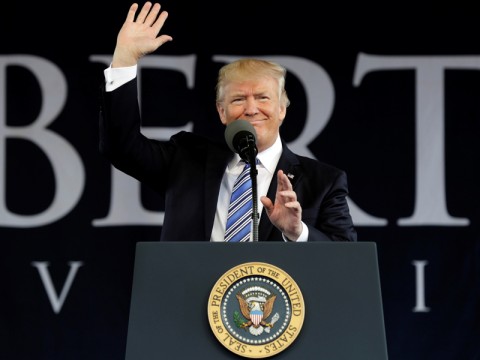An executive order churches didn't need
Trump says pastors are bullied and silenced. That comes as a surprise to me.

When an interviewer once asked Abraham Joshua Heschel what he believed his greatest gift was, the rabbi replied, “My ability to be surprised.” Heschel was referring to the human sense of wonder. Without awe, wonder, and amazement, he reasoned, no reverence is possible.
It turns out that our brains gravitate to surprise as much as our best religious yearnings do. Neuroscientists have discovered that we derive more pleasure from surprises than from other sensations. When human subjects in a Baylor College of Medicine study received computer-generated squirts of either tropical fruit juice or tap water in their mouths, scientists viewing the MRIs noted that it was the element of surprise—not the pleasurable effect of one taste over the other—that elicited the greatest surges of dopamine. More dopamine reached the anterior cingulate cortex of the brain when unexpected stimuli triggered a reflexive neural response.
The power of surprise is one of the reasons live sporting events keep attracting people. There is a dopamine rush every time a baseball goes flying out of the park. It’s also why we can’t tickle ourselves. Unpredictability is the key to tickling, and our brain cancels out the element of surprise when we attempt to tickle ourselves.




